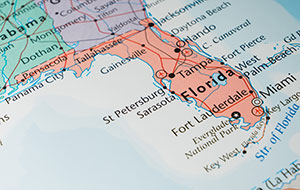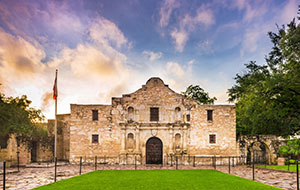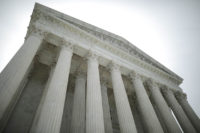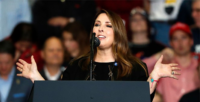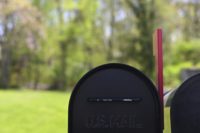Vote Fraud
Vote fraud disenfranchises Americans and poses a serious threat to both the integrity of and confidence in our electoral system. Opponents of measures to prevent vote fraud contend that its occurrence is either nonexistent or so rare as to be insignificant.
Vote fraud is insidious, committed quietly. And once it’s committed, it cannot be undone. Vote fraud contaminates the pool of votes, and if sufficiently extensive, will affect the outcome of an election. As elections determine who exercises political power, there is a motivation among some bad actors to cheat.
Vote fraud is rarely prosecuted for two main reasons. First, it is virtually impossible to identify the fraud before the damage is done as it is primarily committed through absentee and mail-in balloting; second, prosecuting the crime is expensive and is usually a low priority of prosecutors and local law enforcement more concerned with public safety. However, vote fraud is a crime that strikes at the center of our republic.
The principal weakness in our electoral system that fosters vote fraud is inaccurate voter registration rolls. The federal requirement that counties maintain clean, accurate voter rolls has been ignored over the years and actively resisted under the Obama Department of Justice.
Voter rolls should contain only the names of eligible residents of a jurisdiction, but in far too many counties, voter rolls bulge with the names of the dead, those who have moved away, non-citizens, fictional names and voters registered in more than one place.
A Pew Center on the States study in 2012 revealed that:
- Approximately 24 million—one of every eight—voter registrations in the United States were no longer valid or were significantly inaccurate.
- More than 1.8 million deceased individuals were listed as voters.
- Approximately 2.75 million people had registrations in more than one state.
In nearly 200 counties around the nation, more people are registered to vote than the counties’ population of eligible citizens. Examples abound of non-citizens and convicted felons registered to vote. In Philadelphia, an ACRU lawsuit in 2016 revealed thousands of ineligible people on the voter rolls. A sampling of counties in Virginia also found hundreds of illegal registrations, according to a 2016 study by the Public Interest Legal Foundation.
In-person vote fraud, while far more rare than absentee voting, does happen, as shown by the video sting operations of Project Veritas, in which an impersonator at a polling place in the District of Columbia claimed to be then-Attorney General Eric H. Holder, Jr. and easily obtained a ballot. In other Project Veritas videos political operatives openly discussed how to commit vote fraud in Wisconsin and other states.
The institutional Left has focused on preventing common-sense laws to require voters to prove they are who they claim they are, making the ridiculous and unprovable claim that photo ID laws discriminate against racial minorities and the poor. But, vote fraud is accommodated by other means such as extended voting periods and relaxed standards for acquiring absentee or mail-in ballots and not requiring proof of citizenship when registering to vote.
Several reasonable actions should be adopted to guard against vote fraud:
- enforce federal voter roll maintenance laws;
- require photo ID to vote in person;
- require voter ID and signature verification for absentee ballots;
- limit early voting to no more than a week prior to an election;
- require proof of U.S. citizenship;
- encourage more states to participate in cooperative efforts to identify voters registered in more than one state.
Voting is a privilege of citizenship and only legal votes should be counted. The only way to stop vote fraud is to prevent it!
ACRU Commentary
A Stellar Choice for the Presidential Advisory Commission on Election Integrity
Hans von Spakovsky's appointment sparks a hit piece in The Washington Post -- and defenders.
Former Florida Mayor Gets Probation over Vote Buying Scheme
Prosecutors said he offered bribes and lowered rent in exchange for votes by absentee ballots.
First Arrest Warrant Issued in Expanding Texas Illegal Voting Case, Ballots Scrutinized
A judge sequestered 700 ballots linked to "Jose Rodriguez," believed to be a fake name.
Project Vote Bites the Dust
The George Soros-funded spawn of ACORN shut down on May 31.
California Progressives Allege Voter Fraud in Democratic Party Election, Demand Voter ID
Irregularities allegedly included allowing voters to cast proxy ballots without proper identification.
Trump’s Commission Will Root Out Voter Fraud, and Here’s How
The solution’s simple: citizenship-verification as a prerequisite for voter registration.
News
Inaccurate voter registration is an incubator for fraud
The difference between absentee voting and mail-only voting is that absentee voting requires a request for a ballot, but mail-only voting means a ballot will be sent to a house where a voter once lived. This article provides a great primer on why this is an invitation for fraud, and also uses Honest Elections Project data to show how widespread voter registration inaccuracies truly are.
Mail-only voting is a vote stealer
According to an analysis of this year's primaries by National Public Radio, at least 65,000 mail in votes were not counted in 17 states studied. Uncounted mail-only ballots, even without malfeasance by dishonest election activists, are a way to stifle American’s political voices. Many elections have been determined by a handful of votes. 65,000 is a big handful.
Soros Groups’ Vote-by-Mail Drive Aims to Expand Government Control
Liberals have made quick use of the coronavirus crisis to promote all manner of policy prescriptions that, under less dire circumstances, would be ignored or lamented by conservatives. The left’s latest gambit is the George Soros-backed vote-by-mail scheme, which promises an election cycle ripe for fraud.
SCOTUS says “no” to relaxing vote security laws
Alabama has long standing curbside voting rules and identification requirements for absentee ballots that safeguard the votes of its citizens. A group led by the Southern Poverty Law Center demanded these protections be overturned (Covid--the usual excuse) and an Obama appointed state judge agreed. Fortunately, the Supreme Court did not, and Alabama will be able to continue to ensure the integrity of its votes.
State Court says “no” to counting votes after election day
Democrats in Florida recently moved to allow ballots to be counted after election day and make ballot harvesting legal in the state. Florida Republicans sued to block these changes, and won. Democrats are also trying this anti-vote integrity maneuver in Minnesota, and we can expect to see it in other states as they try to change the ballot fraud mantra “vote early and often” to "vote early and often and afterward."
When voting by carrier pigeon no longer sounds outrageous
President and 1968 Wharton graduate Donald Trump’s reelection campaign filed a lawsuit against Pennsylvania’s Secretary of State and County Elections Boards, arguing that Pennsylvania’s use of mail-in ballot drop boxes in the June 2 primary election was unconstitutional and increased the threat of voter fraud.



